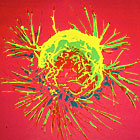Health
-

6 keys to a long, healthy life (ice cream included)
Also, why reading Ben Franklin beats climbing Mount Everest
-

Six cancers rising faster in younger adults than older ones
Large new global study fuels growing concern over trend of increases in several types

-

What’s next for GLP-1s?
Scientists eye new treatment targets for popular weight-loss drugs, from heart failure to addiction
-

Pricey blockbuster GLP-1s are costing users — and most of the rest of us, too
Health insurers are passing along cost for coverage in form of higher rates across the board, policy researcher says
-

Drinking 2-3 cups of coffee a day tied to lower dementia risk
Caffeinated tea also found to slow cognitive decline in study

-

New AI tool predicts brain age, dementia risk, cancer survival
Unlike other AI models, BrainIAC needs limited data to ID key neurological health indicators

-
A transplant makes history
In 1954, Harvard surgeons at the Brigham performed the first successful organ transfer, a kidney exchanged between twins, opening a major medical field, and giving life and hope to thousands of patients.
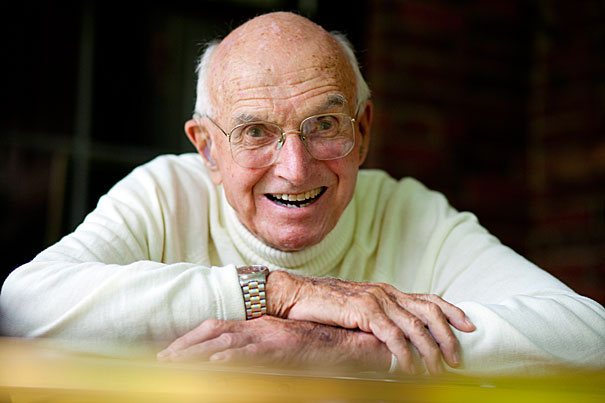
-
HIV prevention gets $20M boost
A new four-year, $20 million grant from the U.S. Centers for Disease Control and Prevention (CDC) will enable Harvard School of Public Health (HSPH) researchers to evaluate the impact and cost-effectiveness of a unique combination of HIV prevention strategies in Botswana.
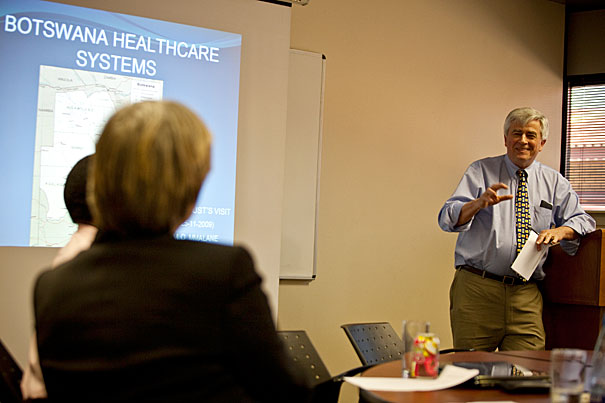
-
Harvard serves up its own ‘Plate’
The Healthy Eating Plate, a visual guide that provides a blueprint for eating a healthy meal, was unveiled today by Harvard nutrition experts.

-
Improving maternal health globally
A new three-year, $12 million grant from the Bill & Melinda Gates Foundation will support a Harvard School of Public Health effort to significantly improve maternal health in developing countries.

-
Disrupting a cancer gene
Scientists at Harvard-affiliated Dana-Farber Cancer Institute have successfully disrupted the function of a cancer gene involved in the formation of most human tumors by tampering with the gene’s “on” switch and growth signals, rather than targeting the gene itself.
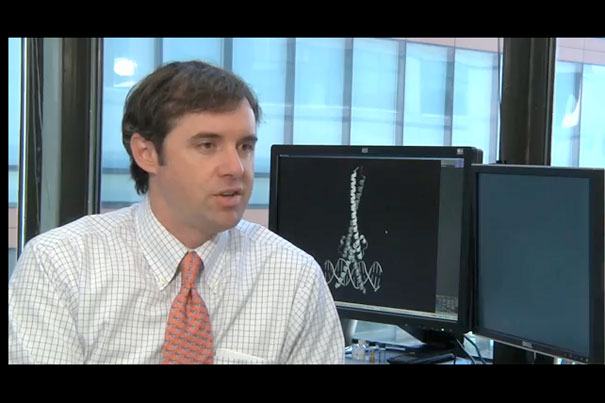
-
Giving hybrids some respect
Harvard researchers have used genetic analysis to confirm that the Appalachian tiger swallowtail butterfly arose through hybridization of two other species, the Canadian and Eastern tiger swallowtails, highlighting a rare case of speciation through hybridization in animals.
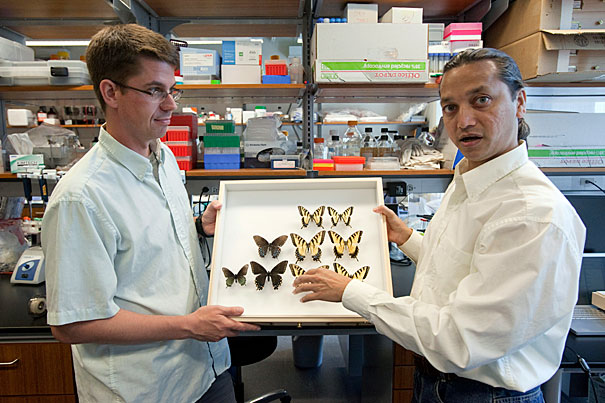
-
Economic impact of living with a smoker
Children who live in households where they are exposed to tobacco smoke miss more days of school than do children living in smoke-free homes, a new nationwide study confirms.

-
Advances in type 2 diabetes drugs
Researchers from Harvard-affiliated Dana-Farber Cancer Institute and the Scripps Research Institute in Jupiter, Fla., report they have created prototype drugs having powerful anti-diabetic effects, yet apparently free — at least in mice — of dangerous side effects plaguing some current diabetes medications.
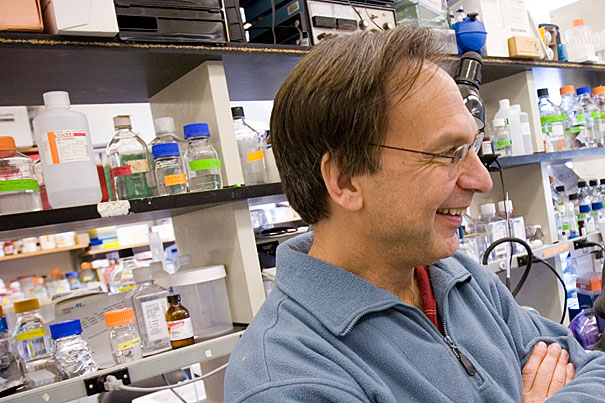
-
First lizard genome sequenced
The green anole lizard is an agile and active creature, and so are elements of its genome. This genomic agility and other new clues have emerged from the full sequencing of the lizard’s genome and may offer insights into how the genomes of humans, mammals, and their reptilian counterparts have evolved since mammals and reptiles parted ways 320 million years ago.

-
From skin cells to motor neurons
Harvard stem cell researchers have succeeded in reprogramming adult mouse skin cells directly into the type of motor neurons damaged in amyotrophic lateral sclerosis, best known as Lou Gehrig’s disease, and spinal muscular atrophy.
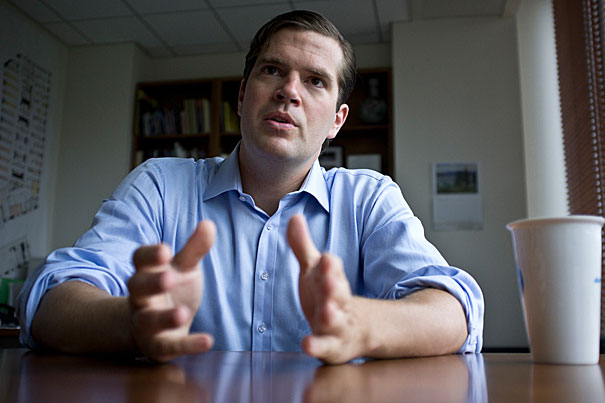
-
Tax on sugary drinks?
The global obesity epidemic has been escalating for decades, yet long-term prevention efforts have barely begun and are inadequate, according to a new paper from international public health experts published in the Aug. 25 issue of the journal The Lancet.

-
Attacking Ebola
Two Harvard-led research teams report identifying a critical protein that Ebola virus exploits to cause deadly infections. The protein target is an essential element through which the virus enters living cells to cause disease.
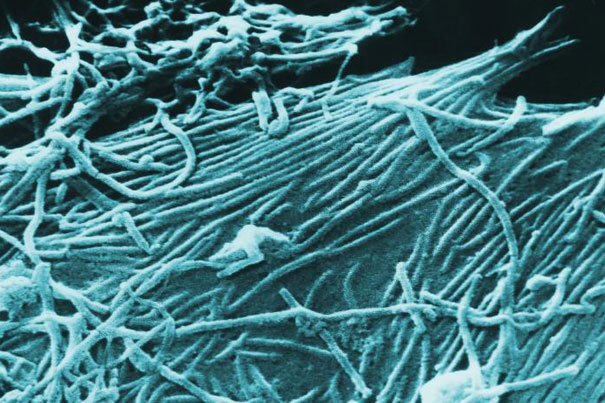
-
The efficient caveman cook
Harvard researchers say the rise of cooking likely occurred more than 1.9 million years ago and bestowed on human ancestors a gift of time in the form of hours each day not spent eating.
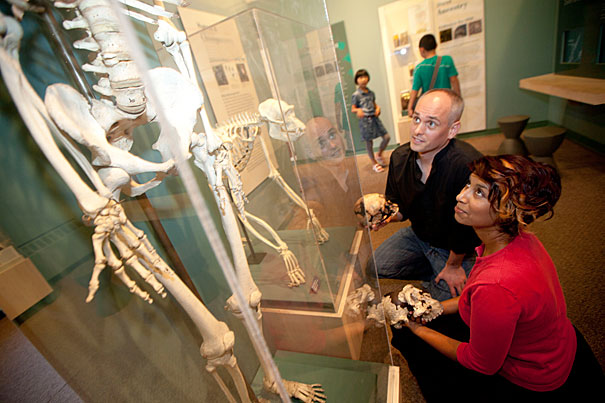
-
Detecting heart-valve infection
A novel imaging probe developed by a Harvard-led team of investigators at Massachusetts General Hospital may make it possible to diagnose accurately a dangerous infection of the heart valves.
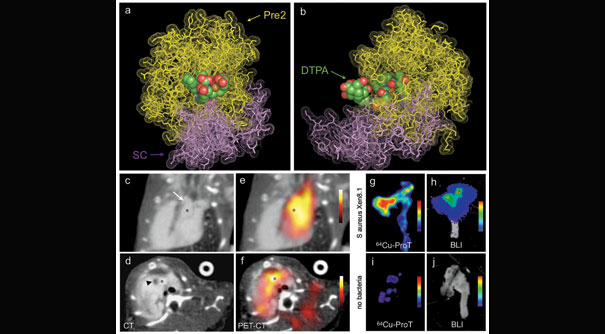
-
Cancer stem cells made, not born
In cancer, tumors aren’t uniform: they are more like complex societies, each with a unique balance of cancer cell types playing different roles. Understanding this “social structure” of tumors is critical for treatment decisions in the clinic because different cell types may be sensitive to different drugs.
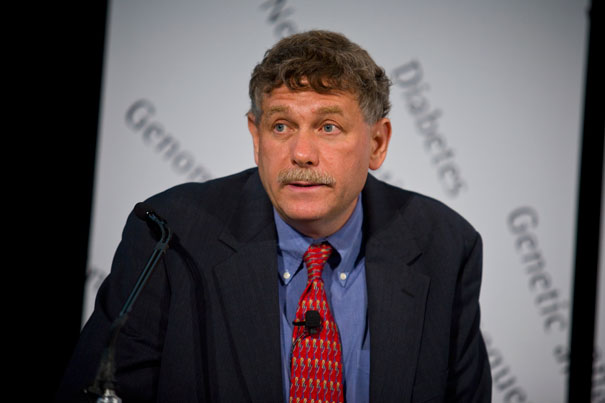
-
Too much variety
More choices for Medicare beneficiaries may not always be better, according to Harvard Medical School research.

-
Clearer view of Parkinson’s
A new study finds that a protein key to Parkinson’s disease has likely been mischaracterized. The protein, alpha-synuclein, appears to have a radically different structure in healthy cells than previously thought, challenging existing disease paradigms and suggesting a new therapeutic approach.
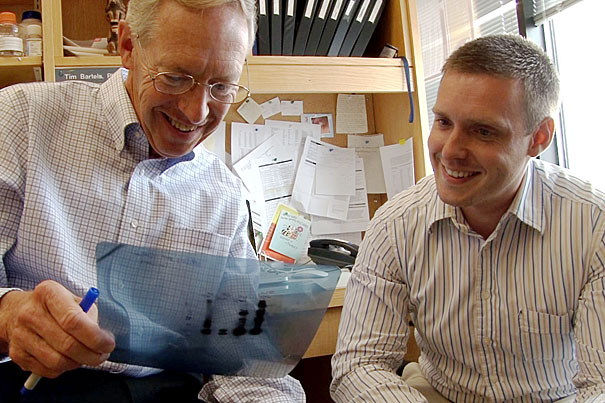
-
Alien world is blacker than coal
Imagine a giant world like Jupiter, but more alien than any planet in our solar system. Instead of displaying gleaming clouds colored white and salmon, this world is darker than the blackest lump of coal. It glows only with a feeble red light like a stove’s electric burner — the result of scorching heat from a sun just 3 million miles away.

-
What’s behind the predictably loopy gut
Between conception and birth, the human gut grows more than two meters long, looping and coiling within the tiny abdomen. Within a given species, the developing vertebrate gut always loops into the same formation — however, until now, it has not been clear why.
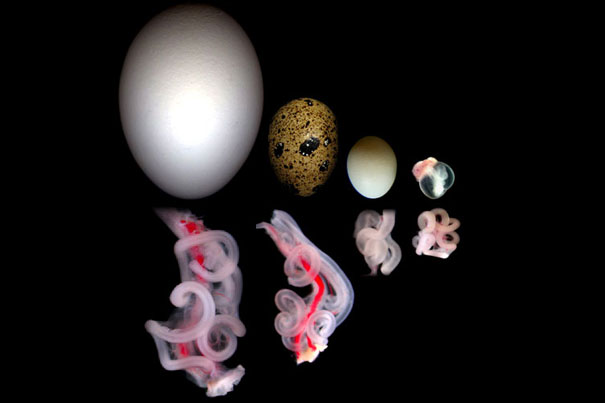
-
Risky eating
A new study by Harvard School of Public Health researchers finds a strong association between the consumption of red meat — particularly when the meat is processed — and an increased risk of type 2 diabetes.

-
Sleep, oxygen, and dementia
Harvard research finds that sleep-disordered breathing is associated with a higher risk of cognitive impairment in older women.
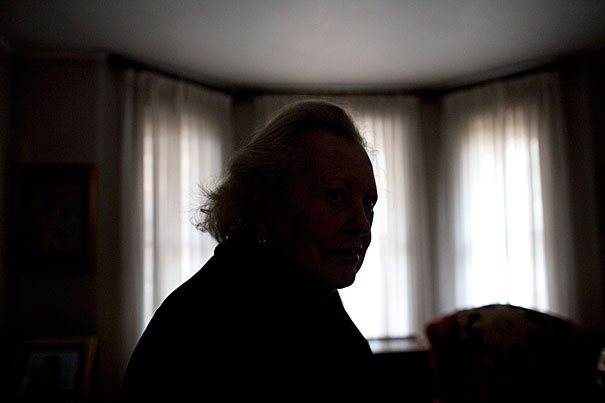
-
Strength in numbers
Harvard researchers have created an analogue of what they think the first multicellular cooperation might have looked like, showing that yeast cells — in an environment that requires them to work for their food — grow and reproduce better in multicellular clumps than singly.
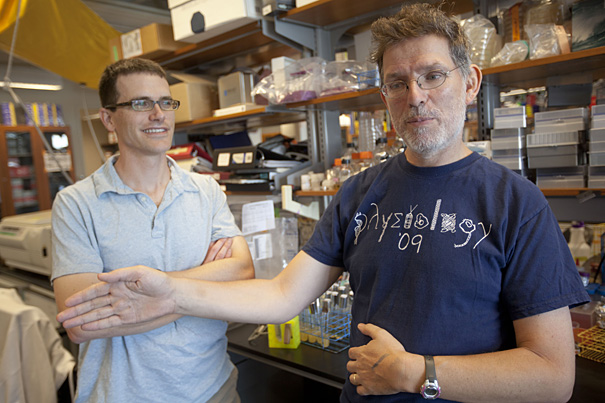
-
Grant backs study of cancer-obesity link
The Harvard School of Public Health has been awarded a five-year, $10 million grant from the National Cancer Institute for a new research center to study the relationship between obesity and cancer.
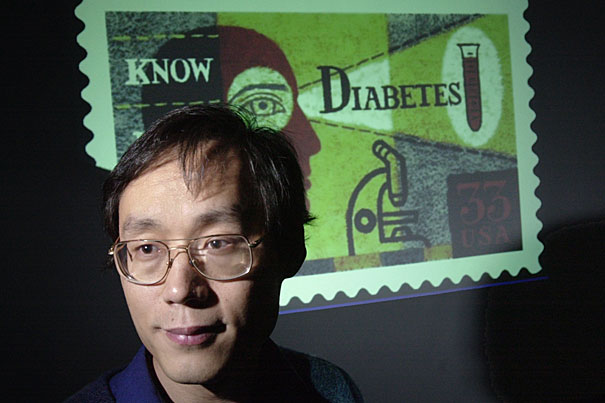
-
HSPH receives $14.1M grant
Harvard School of Public Health (HSPH) has been awarded a $14.1 million, four-year grant from the Bill & Melinda Gates Foundation to test the effectiveness of an innovative checklist-based childbirth safety program in reducing deaths and improving outcomes of mothers and infants in 120 hospitals in India.
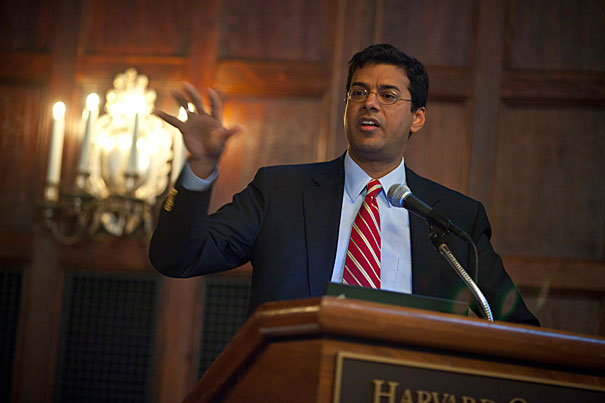
-
Hard fight ahead
Experts participating in an HSPH event expressed hope for rapid progress against Alzheimer’s disease even as they acknowledged that there’s little medical science can do today to help patients.
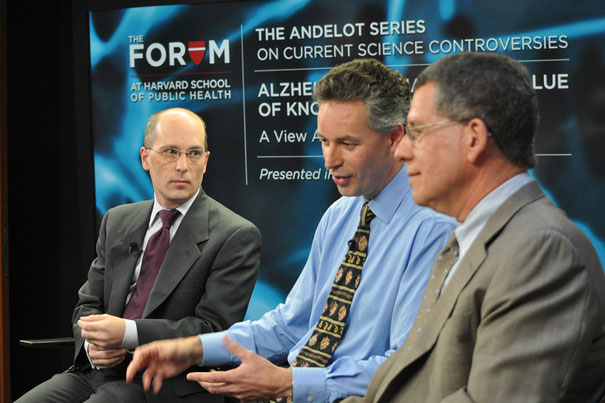
-
New approach to traumatic brain injuries
Bioengineers at Harvard have, for the first time, explained how the blast of an exploding bomb can translate into subtly disastrous injuries in the nerve cells and blood vessels of the brain.
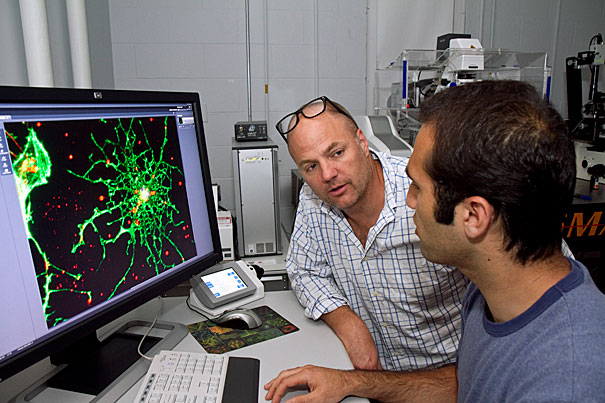
-
New territory
A consortium led by scientists at the University of Oxford and Harvard Medical School has constructed the world’s most detailed genetic map, built from data from 30,000 African-Americans. The researchers assert that this is the most accurate and highest resolution genetic map yet.
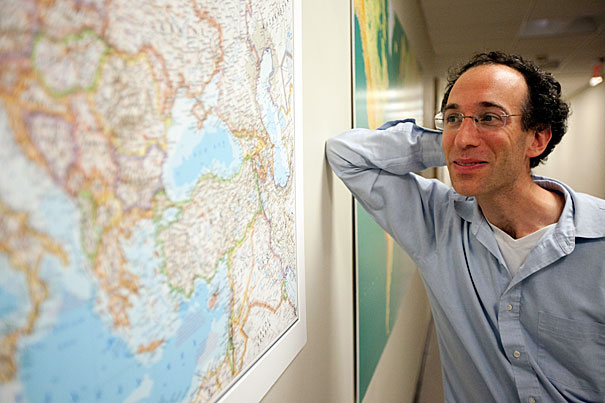
-
Predicting cancer’s spread
Harvard researchers at Dana-Farber Cancer Institute (DFCI) have identified a number of cancer genes that endow melanoma tumors with the ability to metastasize, making it possible to predict whether the tumors are likely to spread.
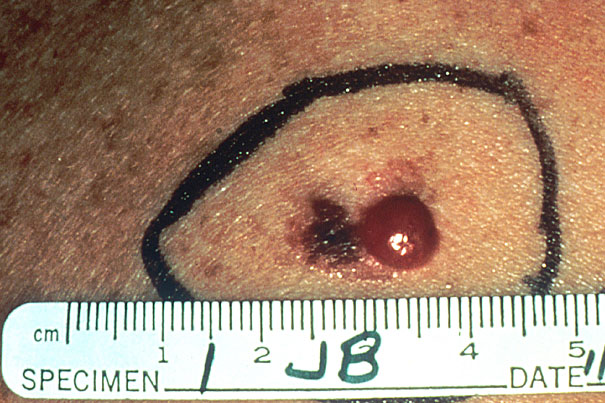
-
Editing the genome
Treating the chromosome as both an editable and an evolvable template, researchers have demonstrated methods to rewrite a cell’s genome through powerful new tools for biotechnology, energy, and agriculture.
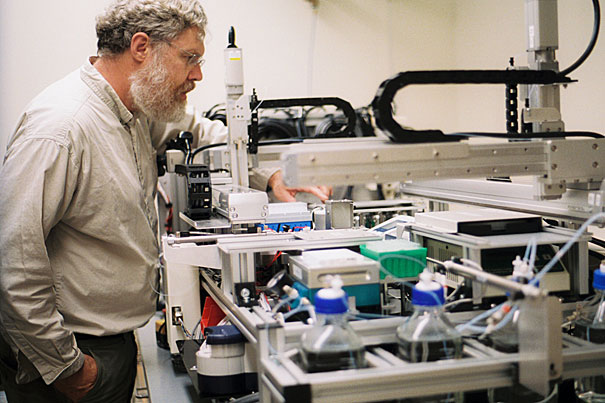
-
When to alter cancer screenings
Not only is it important for physicians to be fully informed about any cancer in their patients’ family histories, but a massive new study led by a Harvard researcher at Massachusetts General Hospital (MGH) and a University of California scientist indicates that it is important to update that history whenever there are contemporaneous changes in it.
